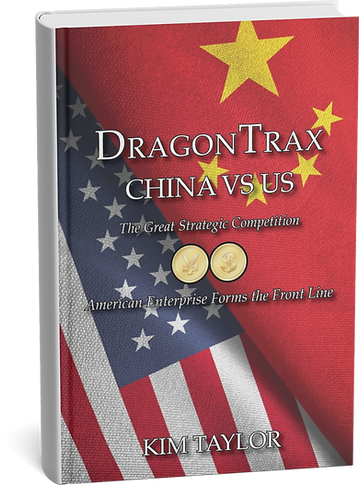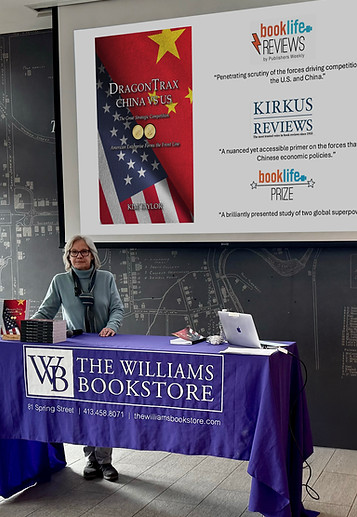
"Penetrating scrutiny of the forces driving competition between the U.S. and China."
—Booklife Reviews
The race to dominate the Fourth Industrial Revolution is on. The majority of the last half century has been shaped by a Chinese/U.S. relationship in which the US provided the innovative breakthroughs and China dominated manufacturing by creating and controlling the world’s largest factory floor. As the two nations seek to define new-era technology, data, intellectual property, and international governance, it’s vital to understand the underlying ideologies that distinguish them. This primer unpacks the forces that shape Chinese economic policies and the impediments they face to win the race.
For markets outside the US, check your in-market book purveyors
ABOUT THE AUTHOR
Kim Taylor is a business and marketing executive who has worked internationally and domestically for Fortune 500 companies including DirecTV, Sony International Entertainment and Comcast. She holds an MBA from the Haslam College of Business. Through her writing, Taylor mines her career experiences to bridge knowledge gaps with the goal of reducing learning curves for competition in domestic and international business arenas. Taylor researches, travels and photographs people and places around the world to understand what drives business and human progress. When not exploring the world, she is ensconced in the natural beauty of Massachusetts’s Berkshire Mountains.


AVAILABLE FOR:
(In-person or remote)
BOOK TALKS
Designed for bookstores, organizations and community events, ensuring the audience walks away with inspiration and insight.
SEMINARS/LECTURES
College-level instruction, from high-level overview to semester length deep-dives, intended to provide students with foundational knowledge on modern geopolitics and economic competition to meet challenges ahead.
CORPORATE TRAINING
Get your teams up to speed with foundational knowledge to meet complex Chinese international and domestic competition.
CONFERENCE SPEAKING
Panel or keynote tailored to meet broad geopolitical issues from a business standpoint, to nuanced discussions on Chinese business and political culture.
